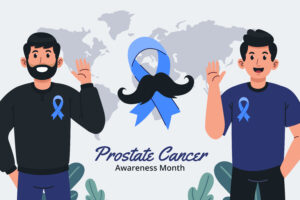Pre-cancerous signs and symptoms:
When it comes to the fight against cancer, prevention and early detection are of the utmost importance. It is possible for individuals to get the ability to take preventative measures for their health by gaining an understanding of the signs and symptoms that may signal pre-cancerous diseases. In this blog, we will discuss the signs and symptoms that are commonly associated with pre-cancerous conditions. Our goal is to shine light on the significance of detecting these early warnings in order to initiate timely intervention.
Pre-Cancerous Signs And Symptoms: Unexplained Weight Loss
It is possible that a potential warning sign is a sudden and unexplained loss of weight, particularly if there have been no changes in food or exercise. Weight fluctuations can be caused by a variety of factors; however, a loss of weight that is both persistent and unplanned may be an indication of underlying health problems, including illnesses that are precancerous. If you have a large loss of weight for which there is no apparent cause, it is imperative that you seek the advice of a qualified medical practitioner.
Pre-Cancerous Signs And Symptoms: Alterations to Your Skin Moles
It is important to pay attention to changes in the skin, particularly moles. In order to assist in the process of monitoring moles for possible indications of skin cancer, the ABCDE rule serves as a helpful guide:
The mole is asymmetrical, meaning that one half of it does not match the other.
The edges are not smooth and may be uneven. This is referred to as border irregularity.
There may be a variety of colors present inside the same mole, or the color may change over the course of time.
It is possible that moles that are larger than the size of an eraser on a pencil could be a cause for concern.
Changing: A healthcare expert should be consulted for any changes in size, shape, or color that occur over the course of development.

Persistent Fatigue
Fatigue is a frequent symptom that can be related with a number of different health disorders; however, pre-cancerous diseases can be associated with fatigue that is persistent and cannot be explained. In order to properly distinguish between normal tiredness and chronic fatigue that interferes with everyday activities, it is essential to make a distinction. Maintaining open lines of contact with a healthcare physician and going in for routine checkups are both crucial components in managing concerns related to fatigue.
Pre-Cancerous Signs And Symptoms: Alterations in the Habits of the Bowel
It is possible that pre-cancerous disorders, particularly those affecting the digestive system, could be indicated by changes in bowel habits, such as prolonged constipation, diarrhea, or changes in the appearance of feces. These changes should not be overlooked, and persons who are suffering persistent discomfort in their gastrointestinal tract should seek the guidance of a medical professional.
Heartburn or indigestion that is persistent

If you experience frequent heartburn or indigestion that does not go away after making adjustments to your lifestyle, it may be an indication of illnesses such as Barrett’s esophagus, which is a pre-cancerous condition that can eventually develop to esophageal cancer. The symptoms of persistent acid reflux should be discussed with a healthcare practitioner in order to allow for an accurate evaluation and therapy of the condition.
Pre-Cancerous Signs And Symptoms: Menstrual Bleeding That Is Not Regular
When it comes to women, irregular menstrual bleeding, particularly bleeding that occurs after menopause, might be an indication of pre-cancerous disorders in the reproductive system. If you experience any unanticipated changes in your monthly patterns, bleeding between periods, or bleeding beyond menopause, you should make an appointment with a healthcare practitioner so that they may evaluate your condition further.

Coughing or hoarseness that comes and goes
It is possible that pre-cancerous diseases in the respiratory system or throat are related with a persistent cough or hoarseness that lasts for an extended period of time. Any changes that last for more than a few weeks should be investigated by a healthcare practitioner, despite the fact that these symptoms could have a variety of reasons.
Swallowing Difficulties
It is possible that pre-cancerous disorders, such as Barrett’s esophagus or dysplasia in the esophagus, are associated with dysphagia, which is another name for difficulty swallowing. An evaluation by a medical professional is required if the difficulty in swallowing continues for an extended period of time, particularly if it is accompanied by pain or decrease in weight.
Conclusion:
When it comes to the journey toward early detection and prevention, one of the most important steps is to recognize the signs and symptoms of pre-cancerous conditions. The presence of these symptoms does not necessarily indicate the presence of cancer; however, they are significant indicators that require attention and investigation by a trained professional. Regular health checkups, open contact with healthcare experts, and taking an active approach to gaining a better understanding of our bodies are all components that contribute to an all-encompassing strategy for preserving our general health and well-being. A culture of early diagnosis and prevention in the fight against cancer can be fostered through the cultivation of a culture of empowerment through information, which enables individuals to be proactive participants in their own health journey.




